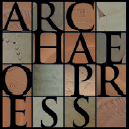
Publishing Scholarly Archaeology since 1997

Download Sample PDF
H 245 x W 174 mm
260 pages
66 figures, 3 tables, 7 diagrams (colour throughout)
Published Feb 2024
ISBN
Paperback: 9781803276717
Digital: 9781803276724
Keywords
Devi; Goddesses; Fertility; South Asia; India; Environment; Environmentalism; British Imperialism; Sanskrit Classics; Puranas; Religion; Hindu; Hinduism; Hindutva; Buddhism; Tibet; Nepal; Environment; Pollution
Related titles




South Asian Goddesses and the Natural Environment
Edited by Marika Vicziany, Jayant Bhalchandra Bapat
Paperback
£45.00
Includes PDF
PDF eBook
(personal use)
£16.00
PDF eBook
(institutional use)
£45.00
This multidisciplinary collection presents 11 essays ranging from the pre-Vedic to the modern era and incorporating research on Hindu, Buddhist and tribal cultures. Authors ask whether the worship of goddesses, strongly linked to fertility rituals, might have mitigated the ecological decline of South Asia in the pre-British and post-colonial eras.
Contents
Preface
References
Chapter 1: South Asian Religions and the Natural Environment – Marika Vicziany
Chapter 2: The Archaeological and Religious History of Lajjāgaurī, a Pre-Vedic Fertility Deity on the Indian Sub-continent – Ravi Korisettar
Chapter 3: Female Avatāra and Guarantor of Fertility: Does the Great Goddess Relate to Nature and the Environment in Some Purāṇas? – Greg Bailey
Chapter 4: The Adoration of Mother Earth in Brāhminic, Folk and Tribal Beliefs and Practices in India – Jayant Bhalchandra Bapat
Chapter 5: In the Ocean of Suffering: Tārā as Protector from Real or Psychological Waters? – David Templeman
Chapter 6: Dariyadev: The Koli sea god and the Fishing Environment in Mumbai – Anusha Kesarkar-Gavankar and Marika Vicziany
Chapter 7: Entering the Goddess’s Womb: How a Rainforest Valley Became a Tibetan Sacred Site – Ruth Gamble
Chapter 8: Durgā Pūjā and the Environment – Pratish Bandopadhayay
Chapter 9: Weapons of the Weak: Koli Deities and the Indian Courts in Koli Responses to Environmental Destruction – Marika Vicziany, Jayant Bhalchandra Bapat and Anusha Kesarkar-Gavankar
Chapter 10: The Descent of the Ganga in India and Mauritius – Peter Friedlander
Chapter 11: Reflections on Dhere’s research on ‘Lajjāgaurī’ and ‘Śrī Ᾱnandanāyakī’ – Jayant Bhalchandra Bapat
About the Author
Marika Vicziany (Professor Emerita, Faculty of Arts, Monash University) heads up a number of international research projects including one about Kolis in Mumbai. She has had an enduring interest in the minorities of Asia. Her research is informed by multi-disciplinary approaches that cover the disciplines of political economy, public health and other policies, history, archaeology, culture, and environmental science. She has published some 20 books and over 140 scholarly papers in peer reviewed journals and books. Her most recent book was published by Archaeopress in late 2019: The Cultures of Ancient Xinjiang, Western China: Crossroads of the Silk Roads edited and authored by her in collaboration with Alison Betts, Peter Jia and Angelo Andrea di Castro. Her fieldwork since 1974 has taken her to cities, towns and villages in India, China, Malaysia, Bangladesh and Pakistan.
Jayant Bapat holds doctorates in Organic Chemistry and Indology and is an Adjunct Research Fellow at Monash University. He is also a Hindu Priest. Jayant’s research interests include Hinduism, Goddess Cults, Koli fishers in Mumbai, and Diaspora Studies. He is the co-editor with Ian Mabbett of The Iconic Female: Goddesses of India, Nepal and Tibet (Monash University Press, 2008), Conceiving the Goddess: Transformation and Appropriation in Indic Religions (Monash University Publishing, 2016) and a co-author of Indian Diaspora: Hindus and Sikhs in Australia (DK Printworld, 2015, Second Edition, Manticore Press, 2019). His latest book, The Lajjāgaurī and Ᾱnandanāyakī, is a translation of R. C. Dhere’s pioneering work in Marathi on the primordial mother goddess (Monash University Publishing, 2020). Recently, Jayant has published a book in Marathi about his experiences as a migrant to Australia. He is a member of Monash University’s Koli Research Project.
Reviews
The Australia-based scholars who have produced this volume have spent decades researching and thinking about Hindu goddesses. Their many previous publications have contributed richly to our understanding of the meanings of these goddesses to their worshipers. This new volume asks a crucially important question about those Hindu goddesses that are identified with forces of nature: does their worship have a beneficial effect on the environment? An influential volume published a quarter century ago asks, “Is the Goddess a Feminist?” This volume asks an analogous question: “Is the Goddess an environmentalist?” – Anne Feldhaus, Distinguished Foundation Professor of Religious Studies Emerita, Arizona State University

 Add to wishlist
Add to wishlist
